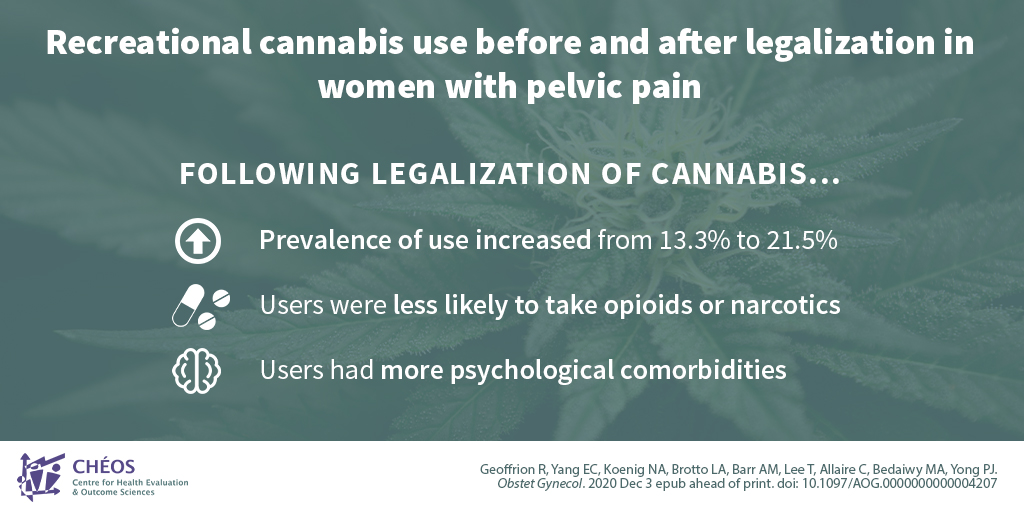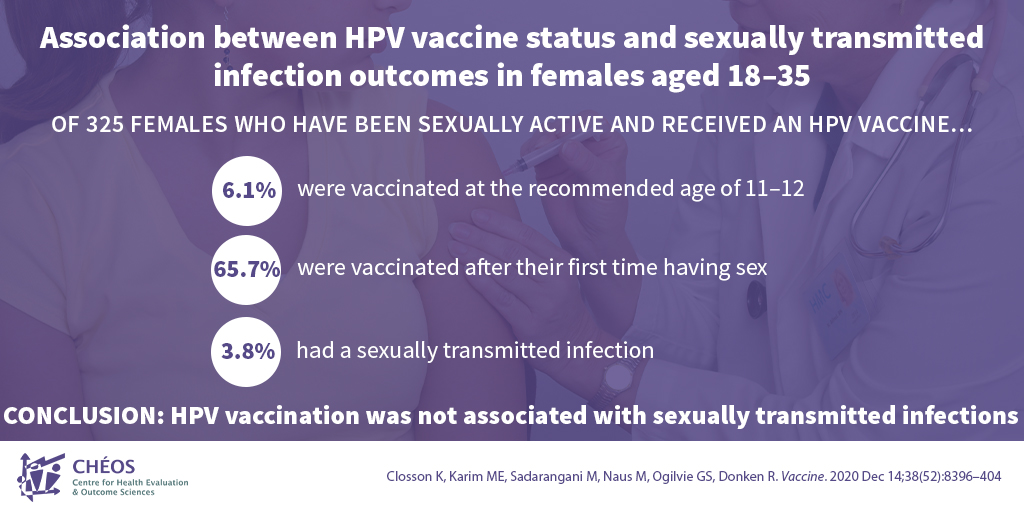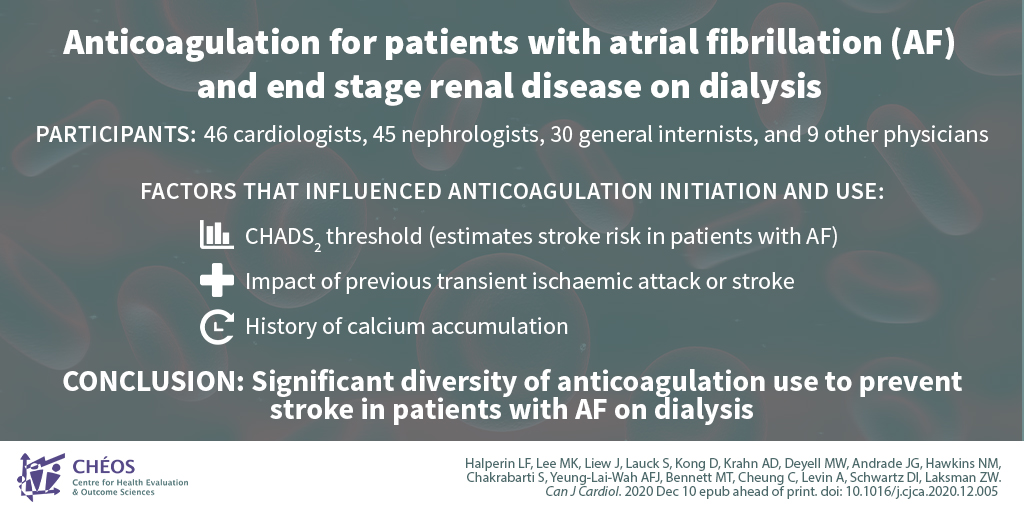The Evidence Speaks Series is a recurring feature highlighting the latest in CHÉOS research. This series features summaries of select publications and is designed to keep media and the research community up-to-date with CHÉOS’ current research results in the health outcomes field.
To ensure this research is quick and easy to share, we are now providing social cards that you are free to save and use as you see fit.
Geoffrion R, Yang EC, Koenig NA, Brotto LA, Barr AM, Lee T, Allaire C, Bedaiwy MA, Yong PJ. Recreational Cannabis Use Before and After Legalization in Women With Pelvic Pain. Obstet Gynecol. 2020 Dec 3 epub ahead of print.
CHÉOS Scientist Dr. Roxana Geoffrion and Statistician Terry Lee collaborated with researchers from UBC to evaluate recreational cannabis use in women with pelvic pain and determine how cannabis legalization has had an impact. They discovered that after cannabis was legalized, the prevalence of use increased from around one in eight women with pelvic pain to one in five. Furthermore, the post-legalization users had higher average education levels, worse psychological scores, and were less likely to use daily opioids compared with pre-legalization users.

—
Closson K, Karim ME, Sadarangani M, Naus M, Ogilvie GS, Donken R. Association between human papillomavirus vaccine status and sexually transmitted infection outcomes among females aged 18-35 with a history of sexual activity in the United States: A population survey-based cross-sectional analysis. Vaccine. 2020 Dec 14;38(52):8396–404.
CHÉOS Scientist Dr. Ehsan Karim worked with B.C. colleagues to investigate the association between HPV vaccination and sexually transmitted infection (STI) outcomes among females aged 18–35. Of the participants who have been sexually active and received the HPV vaccine, 6.1 per cent received it at the recommended age of 11–12 and 65.7 per cent received it after their first time having sex. The researchers noted that just 3.8 per cent of these females had an STI and 3.5 per cent had vaccine-type HPV (HPV 6/11/16/18). They concluded that there was no association between HPV vaccination and STI outcomes.

—
Halperin LF, Lee MK, Liew J, Lauck S, Kong D, Krahn AD, Deyell MW, Andrade JG, Hawkins NM, Chakrabarti S, Yeung-Lai-Wah AFJ, Bennett MT, Cheung C, Levin A, Schwartz DI, Laksman ZW. Anticoagulation for Patients with Atrial Fibrillation and End Stage Renal Disease on Dialysis: A National Survey. Can J Cardiol. 2020 Dec 10 epub ahead of print.
CHÉOS Scientists Drs. Sandra Lauck, Nathaniel Hawkins, and Adeera Levin plus Statistician May Lee joined colleagues from Vancouver, B.C., to explore the factors that influence the use of anticoagulation to prevent stroke in patients with atrial fibrillation and end-stage renal disease on dialysis. Using an investigator-driven survey, they obtained insights from physicians across several specialties and determined that there are a number of factors that influence their use of anticoagulation. Specialties differed in the CHADS2 threshold used (estimates stroke risk), the impact of previous transient ischaemic attack or stroke, and history of calcium accumulation.




